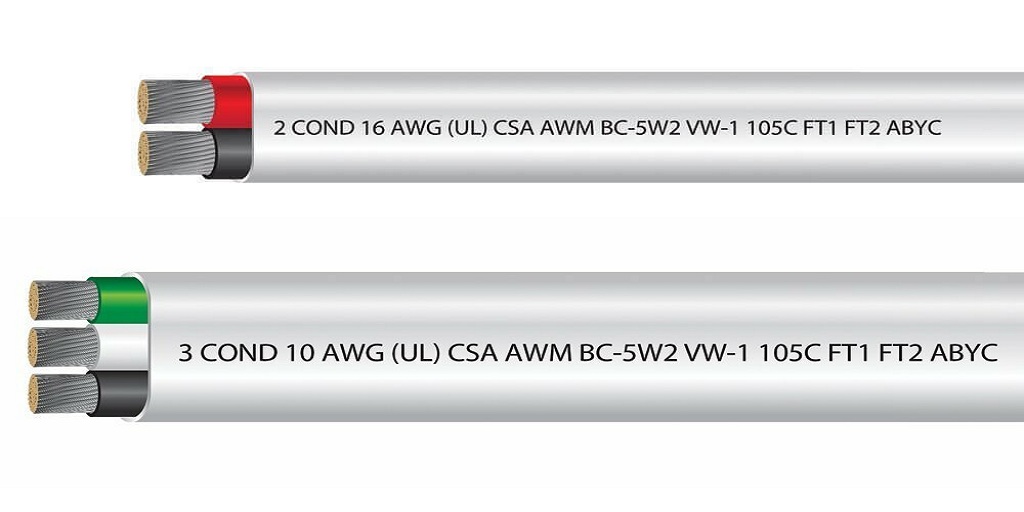For those of you that are just looking for a quick bit of information, it might not be readily apparent that there is a difference between battery cable or wire and welding cables. It might also not be evident that there is actually a difference between wire and cable. Let’s clear some of this up.
Wire vs. Cable
Electricity travels along conductors, typically made of metals such as aluminum or copper, although sometimes metals like silver and gold are used instead.
A wire is a single conductor. A cable is a group of wires braided together; therefore there are more conductors within a cable than within a wire.
The advantage conferred by wire is that it remains more flexible as the gauge of the cable increases, with minimal if any change to current carrying capacity as compared to a wire of the same gauge.
What Is Battery Cable Wire Used for?
Despite being frequently referred to as “battery cable wires” most battery “wires” are actually battery cables, since they contain multiple conductors.
Battery wires are predominantly used as leads to and from the negative and positive terminals of batteries, such as the battery in a car, a golf cart, or even a boat.
For the most part, battery cables are no different from other conductors, except that they are created with colored insulation that is typically red or black. This is extremely helpful for electricians to be able to identify the leads at a glance and ensure the battery is properly hooked up.
There are some niche applications in which battery wire or cable might exhibit certain special traits. For example, high-quality marine battery cable and wire have a high strand count for extra flexibility. The conductors (copper strands) of marine battery cables are also individually tinned to protect against corrosion.
What Is Welding Cable?
Welding cables are used to provide electrical power to welding equipment. Since much industrial welding occurs in situ, in the elements, welding cable must be very tough and very flexible.
For these reasons, it is vital for welding cable to be made with as many fine individual conductors as possible, so that the welding cable remains flexible enough to be worked into location.
Welding cable is also likely to be subject to harsh environmental stressors, making it necessary for it to be protected with very tough insulation, for example, it’s common for welding cables to be weather and moisture resistant, UV resistant, abrasion-resistant, and chemical resistant. Some welding cables are also resistant to oil and gasoline.
For these reasons, some welding cables are also marketed as suitable for use as photovoltaic (PV) cables, for hookups to solar inverters, and as leads to motors and generators. Incidentally, some welding cables are also marketed as battery cables and wires, where they can be used as leads to battery terminals.
The Crossover
You probably have gotten the impression by this point that there are some similarities between welding cables and battery cable and wire because there are.
Both of them benefit from extra flexibility, and in the case of welding cable, the insulation is even more durable than is the case with some battery cables.
Therefore, while they are not expressly the same, you may be able to use some welding cable as battery cable.
For example, the welding cables available online at EWCS Wire (EWCSWire.com) are listed as suitable as battery cables. They’re made with 100% pure copper conductors and are extra flexible as well.
To learn more about these battery cables and welding cables, visit their website or contact them directly at 800-262-1598 or at [email protected].



